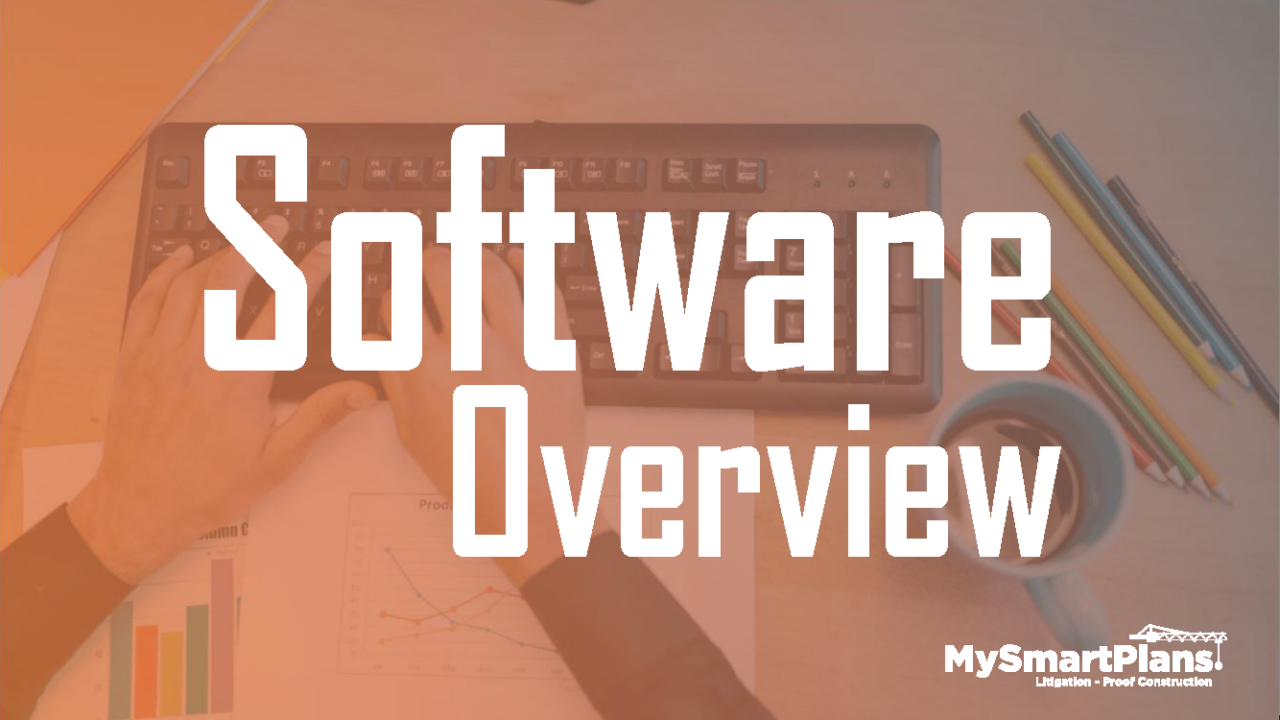MySmartPlans has saved thousands of hours in costly rework and has allowed us to collaborate with our team members in the most efficient manner possible.

Honors & Awards
Business Of The Year
Kansas Women-Owned Businesses 2017
Rule Breaker Award
New York Rule Breakers 2015
25 Outstanding Businesses Under 25 Employees
Twenty Five – 25 2012
CEO of the Year
City Union Mission 2009
Women Who Mean Business
Biz Journal 2009
Vision of Excellence
National Association of Women in Construction – 2009
About MySmartPlans

Born from Hard-Won Experience, Built for Unshakeable Control:
MySmartPlans isn’t just another software company; it’s the culmination of resilience and expertise forged in the crucible of construction chaos. Co-founders Shelley (CEO) and Dominick (President), a highly successful 45-year contractor, experienced firsthand how a single project plagued by insufficient data could unravel decades of success, forcing them to close their previous company’s doors.
They didn’t just rebuild; they reinvented construction project management to conquer the very issues that cost them dearly.
MySmartPlans delivers unparalleled project control through a unique fusion of advanced technology and dedicated human expertise. We embed an experienced Digital Information Librarian directly into your team. These specialists are far more than support; they are the catalyst for rigorous Data Governance, meticulously organizing every document and data point.
This creates radical transparency and efficiency, drastically mitigating the risks associated with poor document oversight. For 19 years, we’ve empowered clients to deliver billions of dollars in projects on time and budget, backed by an ironclad, audited project history proven to prevent costly disputes and litigation. We offer the world’s most advanced construction intelligence solution, ensuring clarity and success from groundbreaking to handover.
Honors & Awards
Business Of The Year
Kansas Women-Owned Businesses 2017
Rule Breaker Award
New York Rule Breakers 2015
25 Outstanding Businesses Under 25 Employees
Twenty Five – 25 2012
CEO of the Year
City Union Mission 2009
Women Who Mean Business
Biz Journal 2009
Vision of Excellence
National Association of Women in Construction – 2009
About MySmartPlans

Shelley Armato and Dominick Armato
Shelley is the Founder and CEO of MySmartPlans. Her husband Dominick is Co-founder and President. They suffered firsthand the effects of chaos in the industry. Dominick, a 45-year contractor, was wildly successful and one project with insufficient data caused them to shut the doors on that company. But they rose again and reinvented the construction industry by streamlining the business.
MySmartPlans is a software-as-a-service solution with an experienced digital information librarian as part of your team, who creates transparency, organization, and efficiency in construction projects. They are the driving force behind Data Governance, which mitigates the risk associated with insufficient document oversight. MySmartPlans has been improving the industry for 16 years and has a revenue aggregate of over 19 billion dollars. Build on time, on schedule, and with audited as pre-discovery files that are proven to prevent litigation!
MySmartPlans Track Record:
17 years in business
100% of our 2,130 projects were protected from litigation
$23 billion in project value completed
99.9% of projects were completed on time & on budget
18% project on-site savings
Platform Features
MySmartPlans Track Record:
17 years in business
100% of our 2,130 projects were protected from litigation
$23 billion in project value completed
99.9% of projects were completed on time & on budget
18% project on-site savings
Learn More
The MySmartPlans Manifesto
MySmartPlans has saved thousands of hours in costly rework and has allowed us to collaborate with our team members in the most efficient manner possible.

MySmartPlans helped us focus on the project rather than collection of data & documentation. The MSP team knows what needs to be included and does a great job gathering, managing and ensure timey responses on required information. It also gives us a centralized location for project documentation, giving us comfort of knowing where to find information in the future. MSP allows us to work smarter and be smarter.

Technology has made promises over the years that someday we would all be paperless and all electronic, but there has been a missing link in sharing information between groups. MySmartPlans is the medium that fills that gap.

As a construction litigator…to be able to point and click and find the documentation that relates to that specific change order, whatever, in seconds as opposed to days or weeks manually would be a game changer.

Information Governance in Construction: Building a Strong
Foundation for Data Success
The construction industry is no stranger to complexity. With countless moving parts,
stakeholders, and a constant influx of data, managing information effectively is crucial. That’s
where information governance (IG) comes in. But what exactly is it, and why should
construction firms care? Let’s break it down.
What is Information Governance?
Information governance is a holistic framework that encompasses the policies, processes, and
technologies used to manage an organization’s information assets throughout their lifecycle. It
ensures that information is:
• Accessible: The right people can find the right information when they need it.
• Accurate: Information is reliable and trustworthy.
• Secure: Information is protected from unauthorized access or loss.
• Compliant: Information is managed in accordance with legal and regulatory requirements.

Why Information Governance Matters in Construction
In the construction world, information is a valuable asset. Think about blueprints, contracts,
change orders, safety reports, financial data – the list goes on. Effective information governance
can help construction firms:
1. Reduce Risk: Proper IG minimizes the risk of legal disputes, fines, project delays, and
costly mistakes caused by inaccurate or missing information.
2. Improve Decision-Making: Having timely access to accurate data allows for informed
decision-making, leading to better project outcomes.
3. Increase Efficiency: Streamlined information management processes reduce time wasted
searching for information and improve overall project efficiency.
4. Enhance Collaboration: IG fosters a culture of collaboration and transparency, making
it easier for teams to share information and work together effectively.
5. Protect Reputation: Demonstrating sound information management practices builds
trust with clients, partners, and stakeholders.

Key Components of Information Governance in Construction
An effective IG program in construction should include:
• Information Policies: Clear policies that define how information is created, stored,
shared, and destroyed.
• Data Classification: Identifying and classifying different types of information based on
their sensitivity and importance.
• Access Controls: Restricting access to sensitive information to authorized personnel
only.
• Retention and Disposal Schedules: Defining how long different types of information
should be kept and how to dispose of them securely.
• Training and Awareness: Educating employees on IG policies and procedures to ensure
compliance.
• Technology Solutions: Implementing tools like document management systems, project
management software, and data analytics platforms to support IG efforts.
Building Your Information Governance Program
Here are some steps to get started:
1. Assess Your Needs: Identify your organization’s specific information management
challenges and priorities.
2. Develop Policies and Procedures: Create clear, comprehensive policies and procedures
that align with your organization’s goals and regulatory requirements.
3. Implement Technology: Invest in technology solutions that support your IG efforts and
streamline information management processes.
4. Train Your Team: Provide regular training to ensure that employees understand and
follow IG policies and procedures.
5. Monitor and Evaluate: Continuously monitor your IG program’s effectiveness and
make adjustments as needed.
The Future of Information Governance in Construction
As technology continues to evolve, so too will information governance. Artificial intelligence,
machine learning, and blockchain are just a few of the emerging technologies that are
transforming how information is managed in the construction industry. By embracing these
technologies and adopting a proactive approach to IG, construction firms can position
themselves for success in the digital age.
Shelley Armato
816-479-0261
www.mysmartplans.com

Report: Impact of MySmartPlans on the Mountain Home Air Force Base Project Project Overview: The $40 million Mountain Home Air Force Base project faced considerable

The Construction Dive article highlights a critical challenge: the construction industry is drowning in data, yet struggling to extract meaningful insights due to disorganization and

Let’s face it: construction disputes are a messy business. And in today’s digital age, the “mess” often translates to a mountain of electronically stored information
The only third party administered construction management platform
803 Armstrong
Kansas City, KS 66101
Phone:
(816) 221-7881
Email:
shelley@mysmartplans.com
support@mysmartplans.com

Powered By EmbedPress